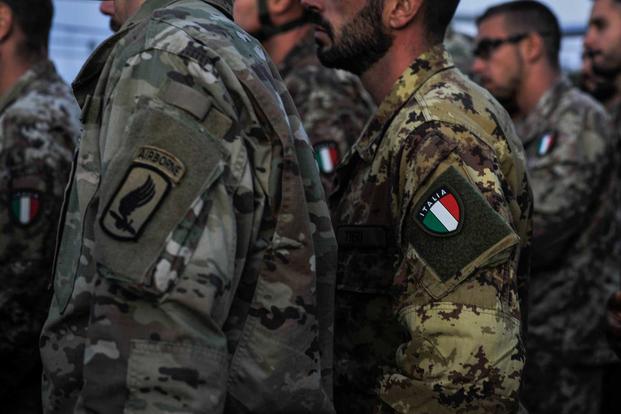Defense Secretary Mark Esper called for a major expansion of programs to train foreign nationals alongside U.S. troops, but said tighter vetting was needed following a shooting rampage this month that killed three sailors at Naval Air Station Pensacola.
"I want to increase that by 50% over the next five years," Esper said Friday of the professional military education, or PME, programs in the U.S. for members of foreign militaries. Currently, more than 5,000 foreign nationals are in the U.S. to participate in these programs.
The overall benefits to U.S. national security in the long run far outweigh any risks, Esper said. The topic is the subject of heated public debate after Saudi Royal Air Force 2nd Lt. Mohammaed Saeed Alshamrani, an aviation trainee, opened fire in a Pensacola classroom building Dec. 6.
Related: US Says No New Foreign Military Students Until Better Checks
"Programs like these help us develop closer relationships with valued partners around the world while also introducing them to America," Esper said in remarks at the Council on Foreign Relations "I have asked the department to find ways to increase PME participation."
The programs afford foreign students the opportunity "to train alongside our best and brightest," Esper said, but tighter vetting was necessary to weed out those who would "cause us harm."
The Defense Department began a review of the screening procedures for students in PME programs immediately after the Pensacola shootings "so we don't rely entirely on the sending countries" to insure that they would not pose a security risk, Esper said.
At a Pentagon news briefing Thursday, chief spokesman Jonathan Hoffman said that about 12 Saudis in training at Pensacola who were friends of Alshamrani have been restricted to quarters and are being monitored by the FBI.
"They are not free to move about," he said.
Operational training for about 140 other Saudi students at Pensacola has been suspended pending the review of vetting procedures, but classroom training is continuing. The students are allowed to leave the base, Hoffman said.
"There's not a prohibition so far" on new students coming into the PME programs, Hoffman said, but any new student would have to go through new vetting procedures to be announced in coming days.
"Until that process is complete, you will not see new students come into the program," he said.
According to the FBI, Alshamrani used a legally purchased Glock 45 9mm handgun to kill Ensign Joshua Kaleb Watson, 23, of Enterprise, Alabama; Airman Mohammed Sameh Haitham, 19, of St. Petersburg, Florida; and Airman Apprentice Cameron Scott Walters, 21, of Richmond Hill, Georgia.
Eight others were injured in the attack before Alshamrani was shot to death by an Escambia County sheriff's deputy.
-- Richard Sisk can be reached at Richard.Sisk@Military.com.












